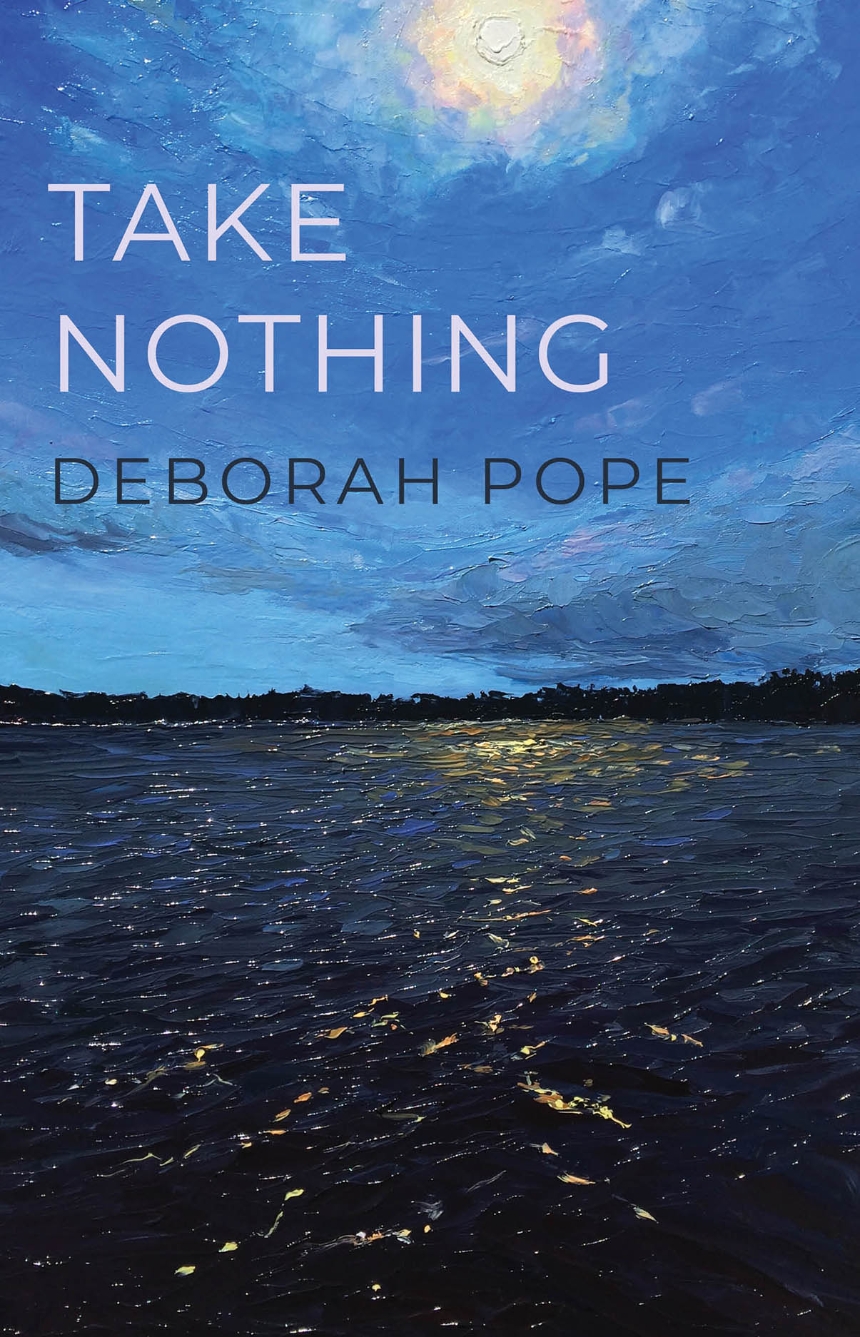Distributed for Carnegie Mellon University Press
Take Nothing
The poems of Take Nothing are embedded in connections to family and landscape, to memory and possibility. They especially explore and distill those indelible, sometimes small, moments that cumulatively shape the arc of a life. These can be as surprising as the visitation of a hawk and as significant as the death of a parent. In a voice that ranges from the wry to the revelatory, and from mourning to celebration, Deborah Pope’s poems speak with lyrical precision and deep experience.

